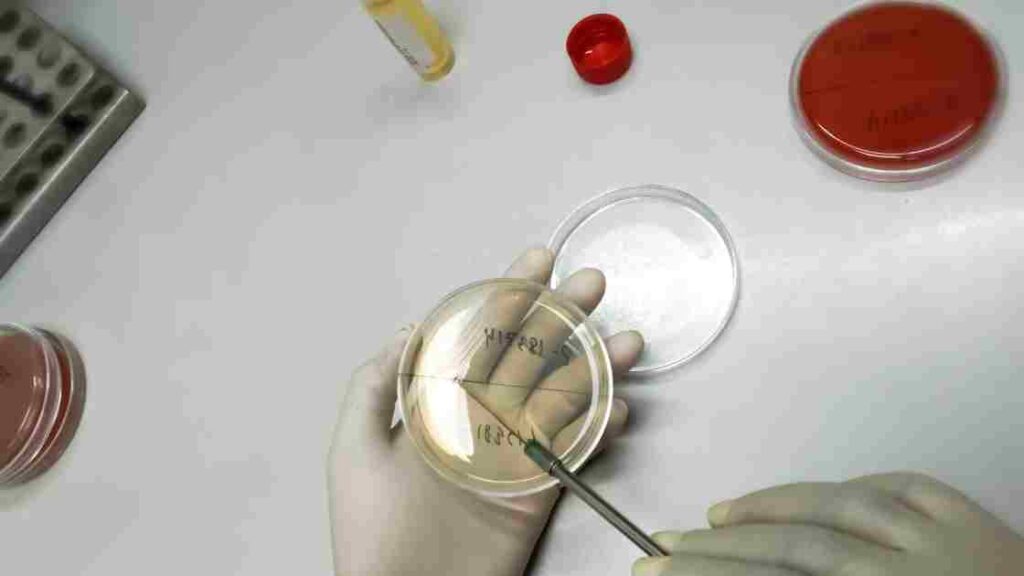A urinary tract infection (UTI) is a common condition that affects the urinary system, including the kidneys, ureters, bladder, and urethra. It occurs when bacteria enter the urinary tract and multiply, leading to an infection. UTIs can cause discomfort and may lead to serious complications if left untreated.
Understanding UTIs
What is a UTI and its causes?
A UTI is primarily caused by bacteria such as E. coli entering the urinary system. The bacteria can travel up the urethra and into the bladder, leading to an infection. In some cases, the infection can progress to the kidneys, resulting in a more severe condition known as a kidney infection.
Why are antibiotics commonly used to treat UTIs?
Antibiotics are the standard treatment for UTIs due to their ability to kill the bacteria causing the infection. They are effective in relieving symptoms and preventing the spread of the infection to other parts of the urinary tract.
Are there alternative treatments for UTIs?
While antibiotics are the most common and effective treatment for UTIs, there are alternative options available. Some individuals may opt for natural remedies or preventive measures to manage mild UTIs, although consulting with a healthcare professional is recommended to determine the most appropriate course of action.
Symptoms and Progression
What are the common symptoms of UTIs?
The symptoms of a UTI may include a strong, persistent urge to urinate, a burning sensation during urination, passing frequent, small amounts of urine, cloudy or strong-smelling urine, and a sensation of pressure or pain in the lower abdomen.
Can UTIs go away on their own without antibiotics?
In some cases, mild UTIs may resolve on their own without the use of antibiotics. However, this is not always the case, and the infection can persist or worsen if not properly treated. It’s essential to monitor symptoms and seek medical advice if there is a lack of improvement.
How long does it take for UTI symptoms to improve?
The duration for UTI symptoms to improve can vary depending on the severity of the infection and the individual’s overall health. With proper treatment, symptoms may start to improve within a few days, but a full recovery may take longer.
Treatment Options
Can you treat a UTI without antibiotics?
In some cases, mild UTIs may be managed without the use of antibiotics through the use of home remedies and supportive measures. However, for moderate to severe UTIs, antibiotics are typically required to effectively clear the infection and prevent complications.
What are some home remedies for UTIs?
Home remedies for UTIs may include increasing water intake to help flush out bacteria, using heat therapy to alleviate discomfort, and consuming cranberry juice or supplements, which have been suggested to potentially help prevent UTIs. However, it’s important to consult with a healthcare provider before solely relying on home remedies.
When should you consider antibiotics for UTI treatment?
Antibiotics are generally recommended for UTI treatment when the infection is more severe or if symptoms persist and worsen. A healthcare professional can determine the most suitable course of antibiotics based on the type of bacteria causing the infection and the individual’s medical history.
Prevention and Management
How can UTIs be prevented?
Preventive measures for UTIs may include staying hydrated, practicing good hygiene, urinating after sexual intercourse, and avoiding irritating feminine products. Additionally, proper wiping techniques and wearing breathable cotton underwear can contribute to reducing the risk of UTIs.
Are there risks associated with untreated UTIs?
Untreated UTIs can lead to more severe complications, such as the spread of the infection to the kidneys, resulting in a kidney infection. It’s important to seek prompt medical attention to prevent the potential progression of the infection and minimize associated risks.
What role does antibiotic resistance play in UTI treatment?
Antibiotic resistance occurs when bacteria develop the ability to resist the effects of antibiotics, making the infection more challenging to treat. Overuse and misuse of antibiotics can contribute to the development of antibiotic-resistant bacteria, emphasizing the importance of using antibiotics judiciously and as prescribed by healthcare professionals.

Myths and Facts
Does cranberry juice help prevent or treat UTIs?
Cranberry juice is often associated with UTI prevention due to its potential ability to prevent bacteria from adhering to the urinary tract, thus reducing the risk of infection. While some studies suggest a potential benefit, more research is needed to conclusively determine the effectiveness of cranberry juice in preventing or treating UTIs.
What are some common misconceptions about UTIs going away on its own?
A common misconception is that all UTIs will resolve without the need for antibiotics. While some mild cases may improve without treatment, moderate to severe UTIs often require antibiotics to effectively clear the infection and prevent complications.
Can vitamin C or other supplements aid in UTI prevention?
Vitamin C and other supplements have been suggested to potentially contribute to UTI prevention by supporting the immune system and promoting overall urinary health. However, the use of supplements should be discussed with a healthcare professional to ensure their appropriateness and effectiveness.

FAQ
Q: What is a urinary tract infection and how does one get it?
A: A urinary tract infection (UTI) is an infection that affects part of the urinary tract. The lower urinary tract is more often affected and involves the bladder (bladder infection). UTIs are caused by bacteria entering the urinary tract, usually through the urethra. Women are more likely to get a UTI due to their anatomy.
Q: Can a UTI go away on its own without treatment?
A: It’s possible for a very mild UTI to resolve on its own without treatment. However, many UTIs need antibiotics to get rid of the infection. Left untreated, a UTI can lead to serious complications. If you think you have a UTI, it’s important to seek medical advice.
Q: What are some signs that a UTI is going away?
A: Signs your UTI is going may include reduced pain during urination, less frequent need to urinate, clearer urine, and overall improvement in well-being. However, relief in symptoms doesn’t always mean the UTI is completely cleared. A urine culture can confirm if the infection is fully treated.
Q: If I start feeling better, can I stop taking antibiotics?
A: Even if symptoms go away, it’s necessary to complete the entire course of antibiotics. Stopping antibiotics early may not fully eradicate the bacteria, leading to a possible recurrence.
Q: What can cause a UTI?
A: The majority of UTIs are caused by bacteria from the bowel that live on the skin near the rectum or in the vagina, which can spread and enter the urinary tract. Females tend to get urinary tract infections more often because the bathroom habits such as wiping from back to front can cause bacteria to enter the urinary tract.

Q: How can I prevent a UTI?
A: You can prevent UTIs by staying hydrated, urinating regularly and completely, urinating after sex, keeping the genital area clean, and maintaining a healthy diet. Women should wipe from front to back after going to the bathroom to prevent bacteria from spreading to the urethra.
Q: Can bladder infections go away without antibiotics?
A: While mild bladder infections can sometimes resolve on their own, it’s typically necessary to treat them with antibiotics to ensure complete clearance of bacteria and prevent complications
Q: Do all UTIs need to be treated with antibiotics?
A: Not all UTIs necessarily need antibiotics, especially if symptoms are mild and the patient has a strong immune response. But to ensure the UTI doesn’t spread or lead to further complications, antibiotics are commonly recommended.
Q: Are recurrent UTIs common?
A: Yes, recurrent UTIs are quite common, especially among women. This is due to the close proximity of the urethra to the anus, which facilitates the transfer of bacteria. If recurrent UTIs are an issue, a healthcare provider may recommend long-term, low-dose antibiotics.
Q: How long does it take for a UTI to go away with antibiotics?
A: The length of treatment depends on the type of UTI and the antibiotics prescribed. A simple UTI often improves within a few days of starting antibiotics, while a more complex UTI may require a week or more. You should always take the full course of antibiotics, even if symptoms improve before they are finished.




